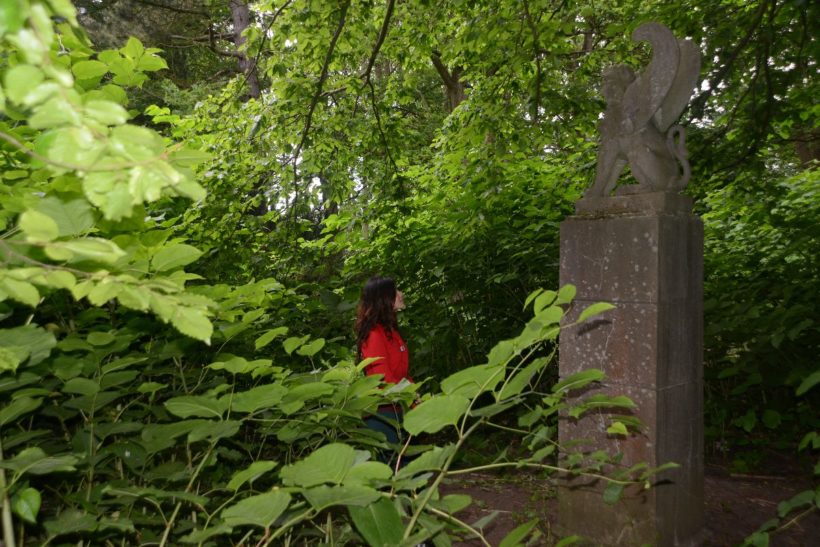They are not necessarily the same thing and, what’s more, the former without the latter could lead us – or is leading us – to a cliff with unpredictable consequences. “But if we humans invented it”, you might say. “One without the other, they just don’t go,” you might add.
I would say that we have only glimpsed the possibilities of human intelligence and that without a qualitatively superior effort, without a real mental revolution, we will not be able to make one of the most complex machines created by mankind, artificial intelligence, truly intelligent and at the service of the evolution of humanity. Of particular concern is the swarm of hard and soft technologies (hardware and software) that, from proprietary, monopolistic and global platforms, seem to have hijacked our privacy, interaction and imagination. Because at the end of the day it would be a grand illusion for you to believe that you really, consciously, choose what information to receive, what to select and what to share. It is the algorithms, the complex mathematical operations developed by commercial platforms, that prioritise traffic according to their interests, which are none other than those of marketers whose main interest is to sell and grow at all costs.
I was told this precisely by someone, whose exact name I never knew, in one of those seemingly fortuitous encounters that sometimes reveal truths that last for a long time. The brief conversation took place in a cramped carriage of the Santiago underground train (shortly before the pandemic). Brief, but very memorable. As if to provoke me to think and write this article.
I approached him, attracted by his interesting intellectual appearance and his hands laden with books.
“Are you a professor of chemistry at the University of Chile, the University of Santiago or the Catholic University? “I asked, as if out of the blue.
“No, I live in London,” he replied, adding that he had come to the Chilean capital for a seminar.
And he too, just out of the blue, in a moment told me everything.
“The next revolution is the revolution of the Mind,” he mused to me.
“You know… the industrial revolution, well… now comes the Mind,” he added, to rule with precision:
“Artificial Intelligence has to be driven by the Mind. Otherwise, it will not be for the benefit of mankind”.
WE ARE AT THE CROSSROADS
Certainly the regulation of digital platforms – and their blatant unchecked collection and sale of our personal data – requires new public policies at national, regional and, especially, global levels. In this respect, European countries seem to be leading the way.
But renowned thinkers agree and complement what the wise gentleman I met on the underground was telling me: that a radical cultural and even behavioural change would be necessary to control this technological storm.
The former political prisoner and later Uruguayan President José “Pepe” Mujica (https://www.dw.com/es/jos%C3%A9-mujica-la-tecnolog%C3%ADa-y-su-potencial-aporte-a-la-justicia-social/av-54385441) said it from his television programme on DW, the German television station.
“The digital world and artificial intelligence must fulfil the role of being the servant of human life and not the other way around, the servant of the opposite,” he said, with more years behind him, from his farm on the outskirts of Montevideo.
“This implies a change of logic, a cultural change that we are far from achieving…”, he added.
“…The door that this advance and this technological process opens makes it possible as long as we can change the cultural roots that govern us. We are with a cultural arsenal that belongs to other times, entering a different time. Nothing is more important than the cultural battle to change our subliminal reactions,” Mujica continued.
“Will we be able to?” he wondered, mentioning, without quite believing it, what a friend once told him.
“Socialism is not possible because man is evil”.
Another who ponders this – and tries to answer – is one Siva Vaidhyanathan, professor at the University of Virginia in the US and director of its Center for Media and Citizenship www.mediaandcitizenship.org)
“…What we really need to do is to re-humanise ourselves. That’s the hard work and the long haul,” Vaidhyanathan said in an interview with the US alternative television programme Democracy Now (https://www.democracynow.org/2018/8/1/a_threat_to_global_democracy_how):
“Yes, I can propose a few regulatory interventions and, yes, they would make a difference … but not enough. …” the professor said.
“If we really want to mitigate the damage done by Facebook, we have to invest our time and our resources in institutions that make us think, that help us think clearly, that can certify the truth, that can provide spaces for deliberation and debate, don’t they? Institutions like journalism, institutions like universities, public libraries, schools and other public spaces….”, he added, urging us to relearn the ways in which we relate to each other.
“We need to put our time and energy into face-to-face politics, so that we can look our opponents in the face, recognise them as human beings and, at some point, achieve a certain rapprochement, or a mutual understanding and respect. Without that, there is no hope…we can’t think collectively”.
“We cannot think with the truth. We simply cannot think. We need to build, or rebuild – if we ever had it – our capacity to think”.
Think about it!
Originally written for the Revista Internet Ciudadana available here Revista Internet Ciudadana N° 6 – August 2021 – The digital and the dispute for the future










